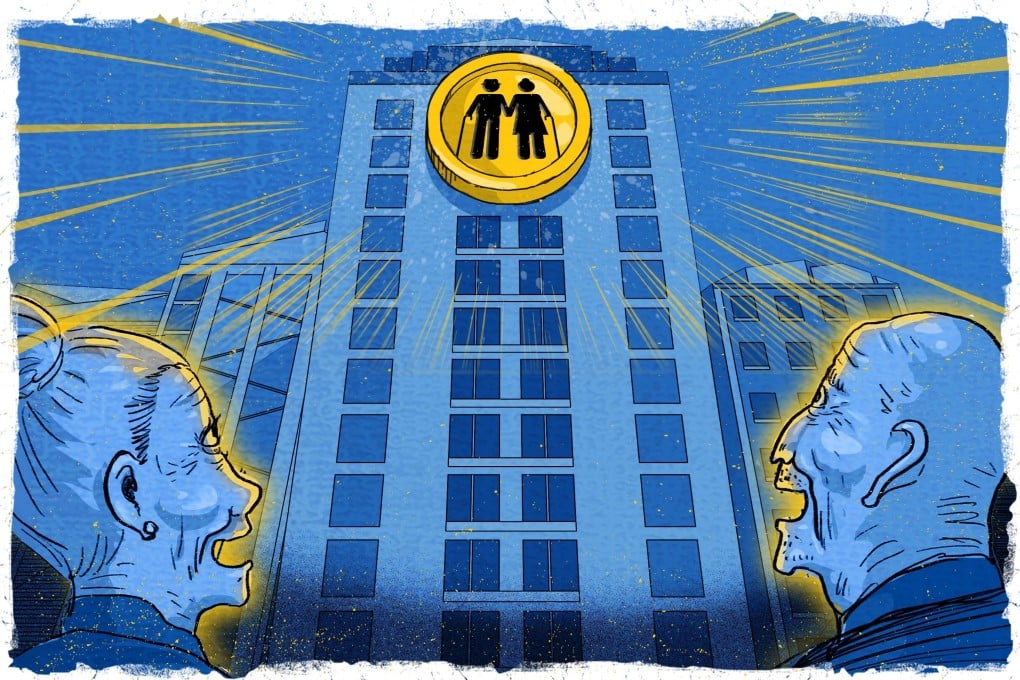Hong Kong’s developers step up to fill the shortage in quality pension homes for the golden years in the world’s fastest-ageing population
- One in five of the city’s residents was older than 65 years at the end of 2020, and the ranks of the elderly may expand to 31 per cent of the population by 2039
- The non-profit Hong Kong Housing Society (HKHS) is the biggest developer of private and subsidised elderly homes, accounting for 83 per cent of the units in the city

For the septuagenarian talk show host and I Ching scholar Shum Yat-fei, a home for the golden years needed special amenities to cater for his needs: wide entrances for his wheelchair, hand rails on corridors and call buttons throughout the facility for emergencies.
That was why Shum, 71, did not think twice when it came to putting down HK$6 million (US$764,000) upfront to rent The Tanner Hill development at North Point on Hong Kong Island in 2016 for his use throughout his lifetime. The 800 square feet (74 square metres) of space was adequate for him and his wife, with plenty of elderly care facilities in the clubhouse for empty nesters and silver-haired residents.
“Housing estates in Hong Kong don’t ordinarily cater for residents in wheelchairs,” said Shum, who has been wheelchair-bound for 50 years since a bout of polio during his late teens. “They do so here, and there are emergency [alarms] everywhere, so I can call for help if I get sick. I can use the library and my wife can use the mahjong room.”

Tanner Hill, built by the Hong Kong Housing Society (HKHS), was the first of just a handful of elderly housing schemes with 1,400 units in total, aimed exclusively at occupants aged 60 and above.
The non-profit HKHS is the biggest developer of these private, government-subsidised elderly homes, accounting for 83 per cent, or 1,164 of the units. They are not for sale, but are leased for the occupants’ lifetimes – called “ageing in place” – and must be handed back to HKHS to be returned to the market when occupants pass away.
